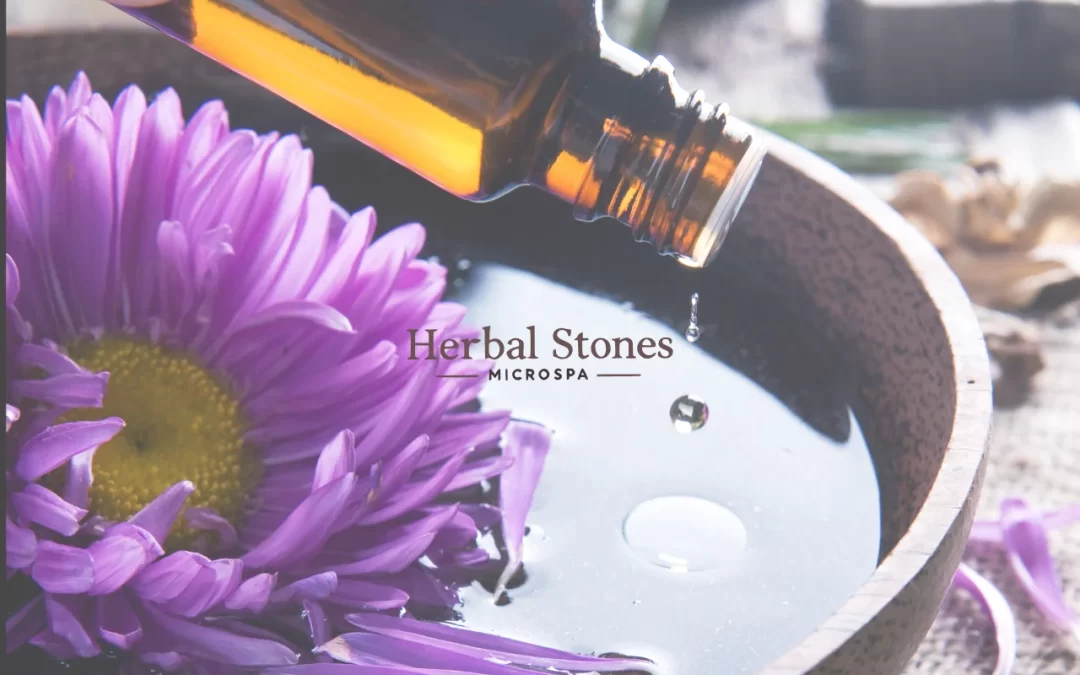The difference between essential oils and normal oils comes down to how they’re made, how they’re used, and what they contain. Essential oils are concentrated plant extracts. They carry the natural scent and active compounds of the plant. They’re primarily used for their aroma and therapeutic effects. Normal oils—also called carrier oils—like olive or coconut oil, are made by pressing the fatty parts of a plant, such as seeds or nuts. They’re mainly used for cooking, moisturizing, or as a base to dilute essential oils.
If you’ve ever held a bottle of lavender or castor oil, you’ve seen the difference. One smells strong and evaporates quickly, while the other feels heavy and stays on your skin. That contrast is why the two aren’t interchangeable.
How Is Essential Oil Made?
Essential oils are usually made through a process called steam distillation. Plants are heated with steam, which carries the aromatic compounds into a separate container. Once the steam cools, the oil separates from the water.
The result is a highly concentrated liquid with the pure essence of the plant. Citrus oils are made differently, by cold pressing the peel to release the oil. No chemicals are used in either method, and nothing artificial is added. That’s what makes true essential oils different from synthetic fragrances.
Is Coconut Oil an Essential Oil?
No, coconut oil is not an essential oil. It’s a carrier oil. It doesn’t evaporate or have a strong smell, and doesn’t contain essential oils’ aromatic compounds.
Coconut oil is extracted from the meat of the coconut by pressing it. It moisturizes the skin, conditions hair, and dilutes more potent oils. So, while it plays a key role in massage and skincare, it doesn’t offer the same therapeutic benefits on its own.
Are Essential Oils Safe?
Essential oils are safe when used correctly. The main risk comes from misuse—applying them directly to the skin without dilution, using low-quality oils with synthetic additives, or ingesting them without guidance. Some oils can irritate sensitive skin or interact with medications. That’s why using pure, high-grade oils and understanding their properties is important. For example, peppermint oil should be diluted before use, and citrus oils can increase the skin’s sensitivity to sunlight. In a professional setting, like massage therapy, trained therapists know how to apply essential oils safely and effectively.
Which Oil Is Best for Essential Oil?
This question usually refers to which carrier oil is best for blending with essential oils. The answer depends on the goal. Sweet almond oil is a good choice for a lightweight feel, while jojoba oil is ideal for dry or sensitive skin.
Fractionated coconut oil is popular, too—it absorbs well and has no scent. Each carrier oil works as a base to dilute essential oils without changing their properties. The goal is to deliver the benefits of the essential oil while protecting the skin from irritation.
Is Castor Oil an Essential Oil?
No, castor oil is not an essential oil. Like coconut oil, castor oil is a carrier oil. It’s thick, odorless, and rich in fatty acids. Castor oil is often used to soothe dry skin and support hair growth, but doesn’t offer the concentrated plant compounds that define essential oils. Castor oil has value on its own, but it’s not part of the essential oil category.
Knowing Your Oils Makes a Real Difference
Understanding the difference between essential and carrier oils isn’t just about labels—it affects how you use them and what benefits you get. Essential oils are concentrated, potent, and designed for specific effects. Carrier oils like coconut or castor oil support and deliver those benefits safely to the skin. Knowing which oils are essential, how they’re made, and how to use them properly makes your choices more effective and safer.
If you’re ready to experience the benefits of true essential oils in practice, schedule a massage therapy session with Herbal Stones. Each massage is done with pure, organic essential oils—no synthetic ingredients, no shortcuts—just real results for your body and mind.

